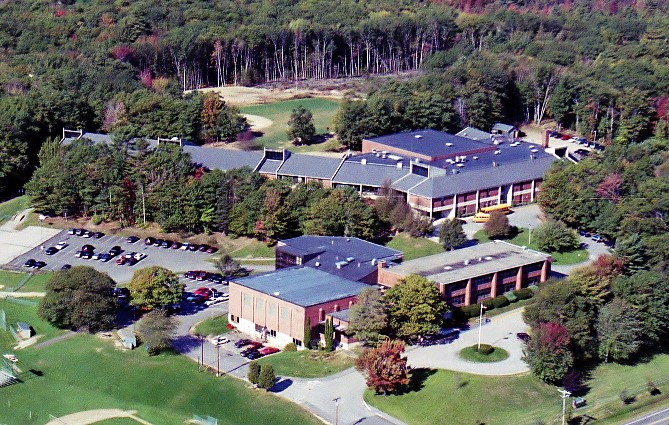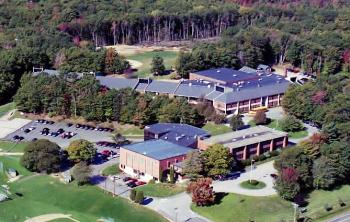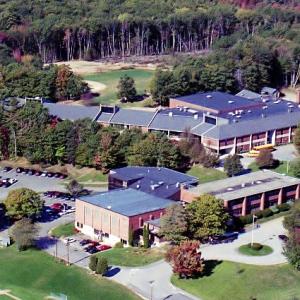Murmurs of school consolidation echo through Boothbay region
School consolidation has been a hot topic in the Boothbay region this year. Several developments have sparked interest in exploring options, but administrators say the issues are more complicated and need layers of input from residents and officials.
The cost of education in the Boothbay-Boothbay Harbor Community School District has been a focal point. Residents passed an $11.7 million 2024 CSD budget in May and are expected to vote later this year on $88 million plans to renovate the elementary-middle school and build a new high school.
Residents have expressed concern about what they see as an unbalanced financial strain placed on Boothbay and Boothbay Harbor taxpayers. In addition, with the cost of needed repairs to maintain aging school buildings, voters are urging officials to ease the burden.
A sea of options
As reported in the Register, the AOS 98 board met June 14 and unanimously voted to create a subcommittee to broadly explore cost-saving options. Organizers hope to involve school boards, town officials and community members and have plans to meet in August, according to Peggy Splaine, CSD school board chair.
“The subcommittee with be meeting to see if any towns in our AOS or surrounding towns have any interest in researching additional options to help provide quality education while maximizing our spending power,” Splaine said in an email to the Register.
A large piece of property recently for sale near the Boothbay-Edgecomb line generated interest in the possibility of a regional school. However, according to officials, the CSD is not likely able to buy land in another town, which means a town, AOS 98, or other group would have to buy the property. However, it is uncertain if the purchase is possible.
"It's certainly worth exploring, but there is a lot of complexity to it as well; that doesn't mean you don't explore it,” AOS 98 Superintendent Robert Kahler said.
“Regionalization” is often used to describe consolidation but it also refers to a specific RSU structure. Other strategies including pooling resources, attracting students, or restructuring may be potential solutions. They could also involve closing Boothbay Region High School and building a new regional school or consolidating different levels of schools.
Kahler said the current AOS system already does some of the things people try to accomplish with regionalization. According to Kahler, AOS 98 reduces costs by combining purchases, such as fuel or contractor services, to get better rates. There is also some staff sharing and collaboration on bussing to increase efficiency.
The people’s voice
Kahler said there are pressing questions to address before exploring regionalization. For one, whether Boothbay and Boothbay Harbor residents are willing to close a school and move the grades somewhere. And some towns, such as Edgecomb and Georgetown, would have to decide if they are willing to give up school choice and other perks.
"Those are two very basic questions that would have to be answered before anyone goes too far down the path,” he said. "Because if the answer to that is 'no,' that sort of ends the discussion."
CSD officials are thinking of including a non-binding question along with the November bond vote on funding school construction. The Building Exploratory Committee is moving forward as planned and will seek community input, and Kahler said the vote is a chance to ask residents if they want regionalization, or something like it, to be explored.
“The largest input of information we are going to get is through the referendum,” he said. “At least from the CSD, we’ll have a clear answer of what they are looking for, and we would have followed through on our commitments, which I think is huge.”
At what price?
Kahler said there is no right answer, but there are tradeoffs. A larger school may streamline costs, bring in tuition with more students, or provide a wider array of resources, but it could also mean larger class sizes or less personal attention.
Consolidation could also mean significant changes in local control. Kahler said small towns, such as Southport and Georgetown, currently decide what they do. However, under a full RSU, the regional community would decide.
“Regionalization is going to affect us all differently ... for us it can potentially mean closing the door of our school,” said ASU 98 Southport representative Adam Harkins at the June AOS 98 meeting. “For all of you, as for us, your school is the center of community and to lose the center of your community is huge.”
CSD School Board Vice Chair Bruce MacDonald was in the state legislature more than a decade ago when there was a push to regionalize schools under Gov. John Baldacci. “It was a hard-fought battle and a bunch of us in the legislature believed in more local control and more local participation by local elections with local school boards having control over their own budget,” MacDonald said at the AOS 98 meeting. “That’s the reason that the AOS exists. If you go to regionalization, there is a whole lot to consider as far as losing local control.”
Talks with town hall
Kahler, school board members and residents have expressed interest in involving selectmen and town managers in conversations to explore the issues.
But like overly polite drivers at a four-way stop, no one appears to be making the first move. As reported in the Register, the issue was raised at the June 26 Boothbay Harbor selectmen's meeting where the board was urged to take initiative. According to Selectboard Chair Michael Tomko, the board has also not received an official invitation from school boards.
Tomko said he welcomes collaboration, and these conversations are an opportunity to discuss strategic plans for the future of Boothbay Harbor, its residents and local businesses. He said he would also like to explore the impacts of school structure on regional economics, housing initiatives and demographics.
“(These issues) impact the current and the future design and makeup of the community, and schools are essential to our region,” he said. “Finding their greatest and best possible use and location should always be a priority. I definitely welcome my and other board members’ participation in that."
While Tomko said schools are a critical part of the community, he acknowledged the selectboard’s responsibility to consider the best solutions, both culturally and economically. He said the cost of capital projects and other needed structural repairs are hard to grasp until they start to get fixed to a tax rate.
However, in the Boothbay region, cost varies widely between households with a significant range of fiscal means. Tomko said he is sensitive to that on every financial decision the selectboard makes.
“When it comes down to a tax bill that's being presented to a homeowner on a fixed income, those are real dollars and those are impactful, and we can't but not be sensitive to that,” he said. “In the end, I want to see what makes best sense, whether it’s rehab what we have, improve with new construction or consider other alternatives. We owe it to the residents to make those decisions extremely thoughtful and to painfully go through the process of trying to make the best decisions.”





























